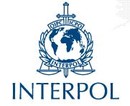Description
Formed in 1992, the Environmental Crime Committee assisted INTERPOL in identifying emerging patterns and trends in the field of environmental crime enforcement. The Committee acted as a forum in which law enforcement officials could discuss new strategies, share experience and expertise and build the bridges of international cooperation vital to the fight against international environmental crime.
In March 2012, the decision was made to restructure the Environmental Crime Committee. This initiative, known as the Environmental Compliance and Enforcement Committee (ECEC), brings together executive leaders and decision makers from all 190 INTERPOL member countries and from member countries of the UNEP governing council to provide strategic advice on relevant issues and to harness global support.
The 1st Meeting of the Environmental Compliance and Enforcement Committee was helf between 6 to 8 November 2013 in Nairobi, Kenya.
To support the ECEC in its function, three working groups lead projects in specific areas:
- The INTERPOL Wildlife Crime Working Group initiates and leads a number of projects to combat the poaching, trafficking, or possession of legally protected flora and fauna. It brings together specialised criminal investigators from around the world to work on project-based activities on an international level.
- The INTERPOL Pollution Crime Working Group initiates and leads a number of projects to combat the transport, trading and disposal of hazardous wastes or resources in contravention of national and international laws. Its activities complement those of the port state control regime, the International Maritime Organization and regional environmental programmes. Projects under the Group include Project Clean Seas, whose aim is to conserve cleaner and safer marine environments.
- The INTERPOL Fisheries Crime Working Group initiates and leads a number of projects to detect and combat fisheries crime. It has four strategic goals:
- Enhance and develop the capacity, capability and cooperation of member countries to effectively enforce fisheries and crossover crimes;
- Encourage and assist the exchange of information and intelligence related to fisheries crime among member countries;
- Provide analytical and operational support to member countries in the enforcement of fisheries laws and regulations;
- Encourage and facilitate networking, channels of communication and exchange of technical expertise between member countries for the purpose of fisheries law enforcement.
Source:
Categories
International / Intergovernmental Organisation
